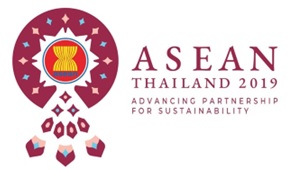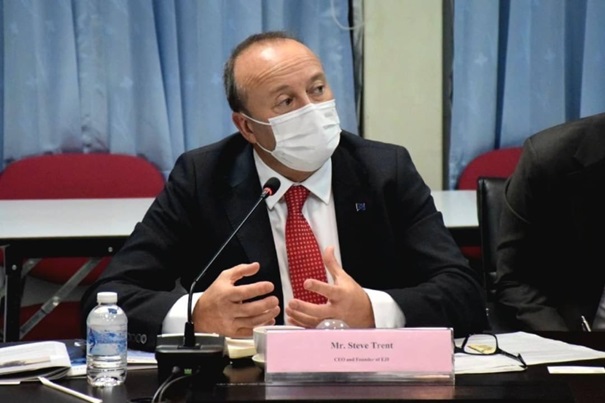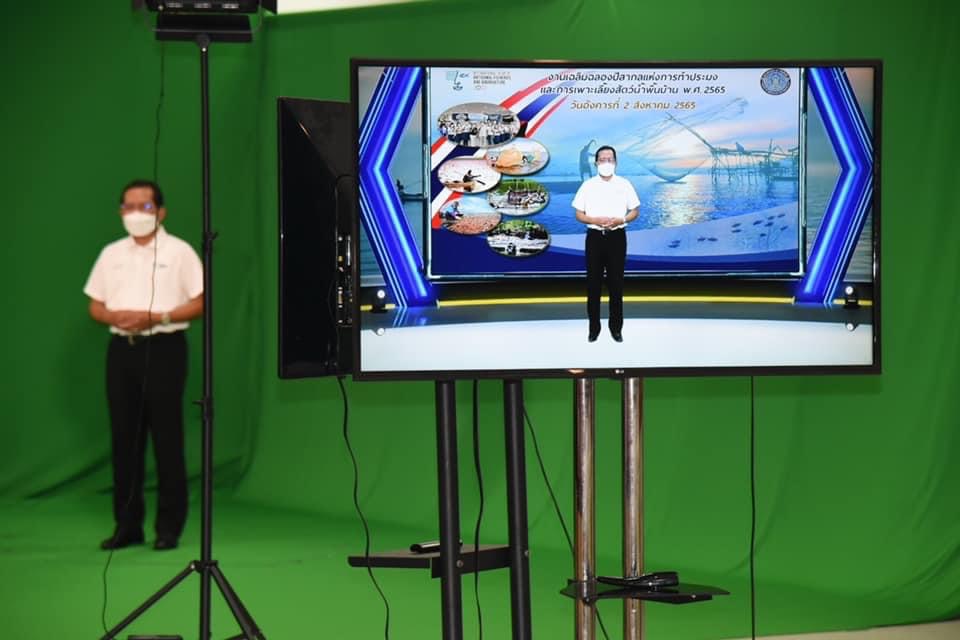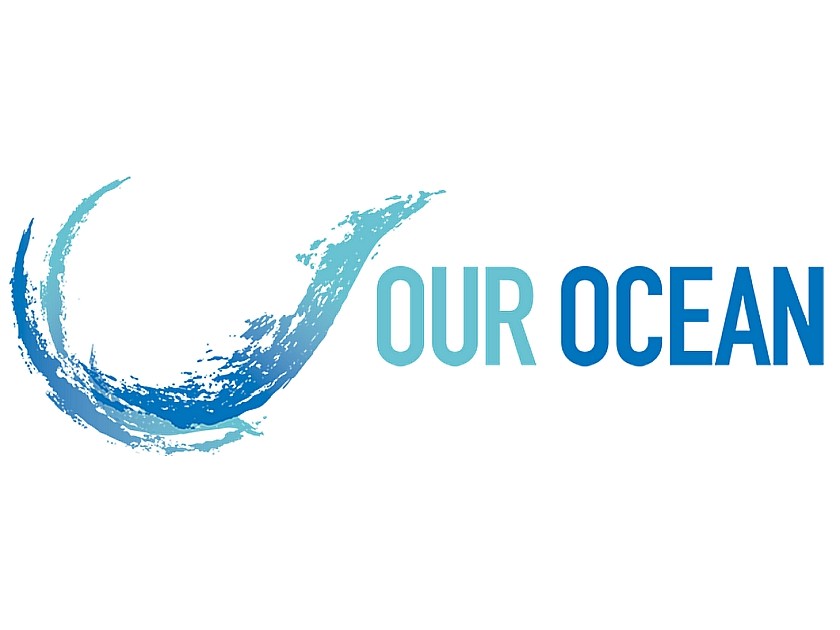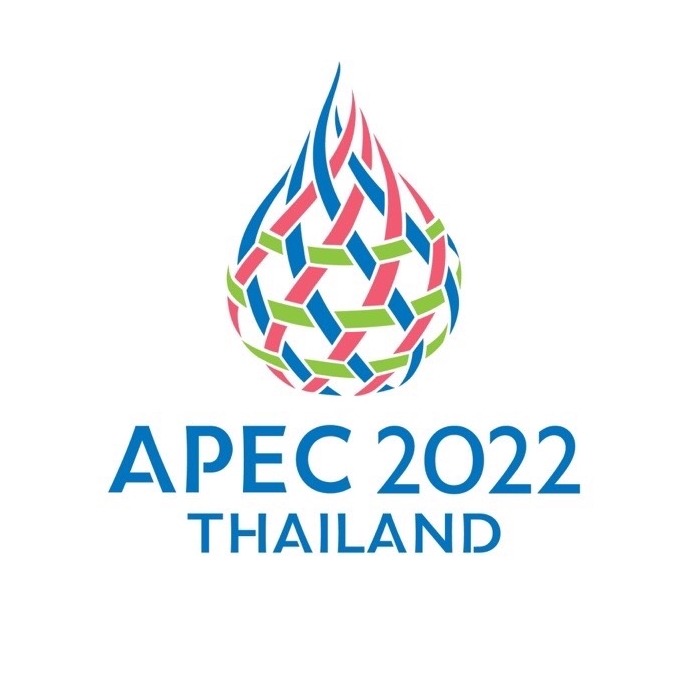Thai Fishery Products’ potential in Saudi Arabia’s market
Thai Fishery Products’ potential in Saudi Arabia’s market According to halal market research, the global halal food and beverage market was valued at 1,533,280 million USD (48 trillion baht) in 2020 and is expected to grow to 2,285,190 million USD (approximately 74 trillion baht) in 2026 with a 20% yearly growth rate, and value addition of 560 billion USD (16.8 trillion baht) per year. This will boost exports and provide new opportunities for Thai farmers and entrepreneurs. Thailand ranks 13 in the world for its potential to produce and export food. According to the Thailand Halal Blueprint, the Thai Government, through the Ministry of Agriculture and Cooperatives, has developed a plan to enter the 2 billion-people Muslim market as well as to invest in the agro-industry and halal food from upstream to downstream in both Thailand and other countries. Despite having a population of only 35 million people, Saudi Arabia is an important Islamic religious ceremony center and economic hub for the Middle East and North Africa, making it a considerable market for halal food products. While Thailand is the world's 11th largest halal food exporter, with a 2.44% market share, fishery products and processed seafood are among the top halal foods exported by Thailand. As a result, the restoration of the Thai-Saudi government relationship after 32 years will increase collaboration and boost development, especially in economics, technology, and innovation. International importers have recognized Thailand as a high-quality halal food producer. In Thailand, there are around 1.4 hundred thousand Halal food entrepreneurs, with 95% or 1.33 hundred thousand of them being non-Muslim. This reflects the availability of Halal food markets for all prospective food entrepreneurs. Halal food is defined as " food that is permissible according to Islamic law". Halal food is crucial for all Muslims and is typically divided into two groups: 1) Natural Halal: agricultural products or non-processed food and 2) Halal by Certification: agricultural products or processed food (including slaughter through a cut to the jugular vein, carotid artery, and windpipe) that are at risk of being contaminated by non-halal ingredients or processed in ways that violate Islamic law, fishery products, and processed seafood are included in these two groups. Halal food from Thailand exports to the potential halal market in the Middle East and Northern Africa includes canned and processed seafood which accounted for 43.6% of overall halal food exported in 2019. The Thai Delegation, led by Mr. Don Pramudwinai, Deputy Prime Minister and Minister of Foreign Affairs, with the representatives from the government and private sector, paid an official visit to the Kingdom of Saudi Arabia from 15-19 May 2022, to mobilize and promote bilateral cooperation between Thailand and Saudi Arabia. This visit also demonstrated both sides' intention to strengthen their cooperation from the public to the private sectors. In addition, the signing ceremony for the Memorandum of Understanding (MoU) between the Board of Trade of Thailand and the Federation of Saudi Chambers was arranged. The cooperation identified in the MoU encompasses the following areas: 1. Establishing Thai-Saudi Business Forum between both sides’ entrepreneurs, 2. Encourage participation in the exposition and trade fairs conducted by each other in order to promote trade and collaboration. It also raises awareness of the products of both countries. The Chamber of Commerce of Thailand has invited the private sector of Saudi Arabia to participate in the ThaiFex, which was held from 24-28 May 2022 in Bangkok, 3. Sharing related regulations and other information to encourage investment consideration in order to enhance the future growth of both sides' private investment, 4. Providing investment facilitation to help Thailand and Saudi Arabia in becoming the top investment targets for both countries’ entrepreneurs, 5. Accelerating the development of a Free Trade Agreement (FTA) between Thailand and Saudi Arabia in order to encourage long-term trade between the two countries and to begin discussions on the FTA agreement as soon as possible. The Thai side provided information on agricultural and fishery products that are produced with quality and in accordance with halal standards, with a variety based on global demand. Thai producers of agricultural and fishery products have the potential and readiness to expand their export market to Saudi Arabia. The two sides agreed to expand agricultural cooperation on crops, fisheries, livestock, and irrigation, as well as the development of food and halal standards, joint investments in agro-industry and halal industrial zone within the framework of the Halal Economic Corridor, including investments in new agricultural technology innovations through the establishment of a working mechanism between the Ministry of Agriculture and Cooperatives of Thailand and the Ministry of Environment, Water and Agriculture of Saudi Arabia. This shows the rehabilitation of the Thai-Saudi relationship has improved successively according to the government's policy of promoting the export of halal food under the Thailand Halal Blueprint. Entrepreneurs, producers, and exporters of fishery products have great potential, which translates into an opportunity for Thailand to increase its exports of halal fish and fishery products to Saudi Arabia in the near future. Mrs. Chuanpid Chantarawarathit Expert in Fisheries International Affairs
Administrator 2022-08-23
ASEAN Network for Combating IUU Fishing (AN-IUU)
ASEAN Network for Combating IUU Fishing (AN-IUU) Fisheries play an important role in the ASEAN region’s food security and nutrition, poverty reduction, employment, and trade. However, Illegal, Unreported, and Unregulated (IUU) fishing is of serious and increasing concern as it undermines the effort to conserve and manage fish stocks in the region. ASEAN recognizes the increasing concerns on IUU fishing and has taken several approaches to strengthen cooperation in combating IUU fishing. The Vision and Strategic Plan for ASEAN Cooperation in Food, Agriculture, and Forestry (2016 - 2025), the Strategic Plan of Action on ASEAN Cooperation on Fisheries (2016 - 2020), and the Joint ASEAN-SEAFDEC Declaration on Regional Cooperation for Combating Illegal Unreported and Unregulated (IUU) Fishing and Enhancing the Competitiveness of ASEAN Fish and Fishery Products outline the focus of cooperation in the areas of strengthening Monitoring, Control and Surveillance (MCS) programmes, building capacity to meet the requirements of Port State Measures Agreement, Flag State and Coastal State Responsibilities that address IUU fishing, and enhancing close collaboration between ASEAN Member States (AMS) and relevant regional and international organizations in combating IUU fishing. As the ASEAN Chairmanship of 2019, under the theme “Advancing Partnership for Sustainability,” Thailand was well placed to deliver outcomes that would position ASEAN as a supporter of the development and comprehensive sustainability in the ASEAN region. Thus, Thailand, therefore, initiated the establishment of the ASEAN IUU Task Force. The 1st ASEAN Meeting on Combating IUU Fishing in Partnership with the EU held from 4-5 April 2019 in Bangkok, Thailand, discussed Thailand’s proposal to set up the ASEAN IUU Task Force. The 27th ASEAN Sectoral Working Group on Fisheries (ASWGFi) Meeting held from 27-29 June 2019 in Da Nang, Viet Nam, agreed to change the ASEAN IUU Task Force into an ASEAN Network for Combating IUU Fishing (hereinafter referred to as “the AN-IUU”) to serve as a cooperation framework for information sharing and capacity-building among AMS in combating IUU fishing through the dissemination of best practices. The AN–IUU aims to support the effective exchange of information, provide an accessible platform for information, create a network for better communication between the law enforcement authorities and governmental competent authorities taking responsibility for combating IUU fishing, and strengthen the capacity of government officials in the region, which will be useful to deliver concrete benefits in tackling IUU fishing. The AN-IUU will complement, and not duplicate, the existing mechanisms, notably: the Regional Plan of Action to Promote Responsible Fishing Practices including Combating Illegal, Unreported, and Unregulated Fishing in the Region (RPOA-IUU) and the Southeast Asian Fisheries Development Center (SEAFDEC). The Meeting submitted to SOM-AMAF, the Concept Proposal on the Establishment of the ASEAN Network for Combating IUU Fishing (AN-IUU) for consideration and endorsement. The 41st AMAF Meeting held on 15 October 2019 in Bandar Seri Begawan, Brunei Darussalam adopted the Concept Proposal on the Establishment of the ASEAN Network for Combating IUU Fishing (AN-IUU) and the document outlines the Cooperation Framework for the establishment of the AN-IUU. The 2nd ASEAN Meeting on Combating IUU Fishing in Partnership with the EU held from 13-14 December 2019 in Bangkok, Thailand, discussed the key draft documents of the AN-IUU namely; Cooperation Framework, TOR, and Rules of Procedure. Then, these key documents have been adopted by the ASEAN Sectoral Working Group (ASWGFi) in June 2020 and further endorsed by the Special SOM-AMAF in August 2020, and adopted by the AMAF meeting on 21 October 2020. With this, ASEAN Member States have agreed that Thailand is the center of the AN-IUU as proposed. In terms of the AN-IUU interactive platform, Thailand as the AN-IUU Centre has developed an online interactive communication platform accessible to relevant authorities in AMS. The platform will provide real-time information and assistance when dealing with IUU fishing activities, which AMSs by AN-IUU Focal Point can access the platform at https://an-iuu.fisheries.go.th/an-iuu/. Advancing Partnership for IUUF-FREE ASEAN
Administrator 2022-08-19
Thailand’s implementation of Combating Illegal, Unreported, and Unregulated Fishing (IUU Fishing) in compliance with the EJF's ten principles for global transparency in the fishing and seafood industry
Thailand’s implementation of Combating Illegal, Unreported, and Unregulated Fishing (IUU Fishing) in compliance with the EJF's ten principles for global transparency in the fishing and seafood industry In summary, Thailand has tackled IUU fishing in accordance with the EJF’s ten principles for global transparency in the fishing and seafood industry, and has been committed in doing so continuously by putting the following measures in place: 1. Vessel Monitoring System (VMS) (Item 2: Public Disclosure of VMS data), the Department of Fisheries is pleased to provide VMS data to the enforcement authorities in accordance with the law prescribed, and if Thailand is a member of the Regional Fisheries Management Organization (RFMOs), VMS data of Thai-flagged fishing vessels/overseas transshipment vessels will be provided upon request of RFMOs. 2. Issuance of fishing licenses (Item 3: Disclosure of fishing licenses) The Department of Fisheries bases its decision on the issuance of fishing licenses and the control of fishing days on scientific data derived from the calculation of the MSY. 3. Disclosure of information (Item 3: Disclosure of the list of authorized fishing vessels) The list of authorized fishing vessels are available on the website of the Department of Fisheries. The Thai flagged fishing vessels and overseas transshipment vessels are listed in the related RFMOs authorized vessel system. 4. Disclosure and publication of cases of penalties for illegal fishing (Item 4: Disclosure and publication of cases of penalties for illegal fishing) The Department of Fisheries publishes the list of fishing vessels used for illegal fishing that has been notified as IUU fishing on its website. 5. Transshipment control measure (Item 5: Transshipment of aquatic animals from one fishing vessel to another vessel is prohibited except under close monitoring) The control measure was developed by the Department of Fisheries utilizing an electronic system that allows historical data to be traced at any time. In addition, according to the law, fishing vessels operating in domestic waters must return to shore within 30 days. 6. Development of a digital database for fishing vessel information (Item 6: Development of fishing vessel digital database) The databases related to the fisheries sector such as vessel registration and fishing license database (e-License), Seabook database, Fishing Info, and Thai Flagged Catch Certification System were developed by the Department of Fisheries. 7. Flags of convenience (Item 7: Flags of convenience are prohibited) The Department of Fisheries has established a strict inspection measure in the event that fishing vessels flying flags of convenience apply to enter the Kingdom (i.e. Panama, Liberia, Somalia, Djibouti, Cameroon), Bangladesh, the Marshall Islands, Singapore, and Hong Kong) 8. Disclosure of fishing vessel owner and beneficiary in fishing (Item 8: Disclosure of fishing vessel owner and beneficiary in fishing) As specified by the Ministerial Regulations on the Issuance of Commercial Fishing Licenses and of Overseas Fishing Licenses, the license applicants must declare their ownership of vessels, both Thai and non-Thai, and provide proof of their ownership of the vessel to the Department of Fisheries. 9. Legal framework (Item 9: Imposition of penalties on persons engaged in IUU fishing), both inside and outside Thai waters, whether they are Thai or non-Thai fishing vessels or stateless vessels, as prescribed by the Royal Ordinance on Fisheries. 10. Use of international standards for the standardization of fishing vessels and trade in fishery products (Item 10: Use of international standards for the standardization of fishing vessels and trade in fishery products) such as the Port State Measures Agreement and the Work in Fishing Convention, etc. In summary, Thailand has tackled IUU fishing in accordance with the EJF's ten principles for global transparency in the fishing and seafood industry, and has been committed in doing so continuousely putting the following measures in place:
Administrator 2022-08-19
International Year of Artisanal Fisheries and Aquaculture (IYAFA 2022)
International Year of Artisanal Fisheries and Aquaculture (IYAFA 2022) On the occasion that the United Nations General Assembly has declared 2022 the International Year of Artisanal Fisheries and Aquaculture (IYAFA 2022), in response, the Department of Fisheries (DoF) has developed a guideline to improve the livelihoods of artisanal fishers and small-scale aquaculture farmers and fish processing entrepreneurs. In addition, the DoF has prioritized developing the country in order to meet the 2030 Sustainable Development Goals without leaving anyone behind, particularly artisanal fishers, farmers, and small-scale fish processing entrepreneurs who make up a large proportion of the Thai population. On 2 August 2022, the DoF hosted an IYAFA2022 celebration, with a major highlight being an online panel discussion led by the Director-General of the Department of Fisheries and attended by representatives from academic, Provincial Office of Natural Resources and Environment Trat, the Network of Community Organization Council of Seven Northeastern Provinces in Mekong Basin and Prachuap Khiri Khan Fisherfolk Association. The following topics were discussed: - The role and significance of artisanal fishing and small-scale aquaculture - Thai fisheries policy in response to global change, - The effects of climate change on fisheries resources and aquaculture, as well as the role of non-governmental organizations (NGOs) in dealing with the changing world situation. You can view the panel discussion video and other documentary content on the website at https://inter.fisheries.go.th/iyafa/.
Administrator 2022-08-19
Our Ocean Conference
Our Ocean Conference Our Ocean conference was first organized in 2014 in the United States with the aim of providing a forum for governments, international organizations, private institutions, and civil society organizations of many countries to fulfill their purpose and their plan for the protection and conservation of natural resources. The country's leaders and ministerial representatives will be honored to make a statement of intent and commitment at the conference. The leaders of the Ministry of Agriculture and Cooperatives and the Department of Fisheries have consistently attended the conference and represented Thailand's commitment to ensuring the sustainable and efficient use of aquatic animal resources. In addition, Thailand is also raising stakeholders' awareness of the importance of ocean restoration and conservation through many activities such as combating IUU fishing, promoting community participation in fisheries management, reducing marine debris upon fishing vessels’ cooperation, and implementing the Fisheries Improvement Project (FIP) for the Thai waters. The Department of Fisheries cannot participate in the 7th Our Ocean Conference held in the Republic of Palau due to the COVID-19 pandemic, however, expressing its commitment to the Our Ocean Conference Platform (OOC Platform): a platform for tracking and updating the progress of commitments made as follows: Sustainable Blue Economy: Thai waters' marine resources are restored through management based on a scientific reference point, with Catch Per Unit of Effort (CPUE) as an abundance indicator and a catch increase of no less than 2 percent as sustainable use of resources indicator, with the catch rate in Thai waters in 2021 being 43.52 kg/hour as a reference. Sustainable Fisheries: The Department of Fisheries is launching a research project addressing fishing gear that harms dugongs in order to reduce deaths caused by entanglement in fishing gear. Artisanal fishing grounds and gear including information on dugongs and their livelihoods in the target area are surveyed, and gears that may affect dugongs in the target areas are assessed. Discussions are held with artisanal fishers and relevant authorities to raise awareness of the importance of fishing activities that may harm dugongs and to help them understand the importance of conserving aquatic animal resources and endangered marine species. Manatee habitats will be protected and guidelines or agreements on operating fishing that reduce the impact on dugongs in the target area must be developed over a period of at least 1 area per year.
Administrator 2022-08-19
The 2nd APEC Meeting of Ocean and Fisheries Working Group (OFWG)
The 2nd APEC Meeting of Ocean and Fisheries Working Group (OFWG) On the occasion that Thailand is hosting the Asia-Pacific Economic Cooperation (APEC) Meeting in 2022, the Department of Fisheries will be a co-host of the 2nd Meeting of Ocean and Fisheries Working Group (OFWG), which will be held in a hybrid format during 17-18 August 2022. The Department of Fisheries in collaboration with the Department of Marine and Coastal Resources as the National Focal Point will work together to advance the APEC priorities and promote inclusive and sustainable growth, as well as the BCG economic model or Bio-Circular-Green Economy which is related to the OFWG in field of marine resources conservation and sustainable fisheries for food security. Technology and innovation will be applied to improve the effectiveness of fisheries and marine resource management in paralleling with environmental conservation. In addition, the Department of Fisheries will reiterate to the OFWG that Thailand has underlined the Thailand's theme for APEC 2022 “Open, Connect and Balance” which aims to open to all opportunities, connect in all dimensions, and balance in all aspects to ensure the APEC region’s sustainable future.
Administrator 2022-08-19



